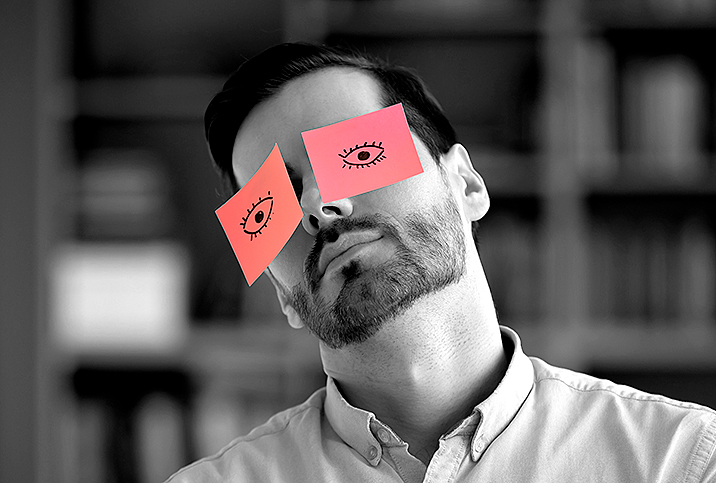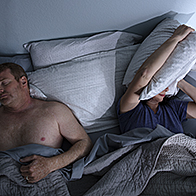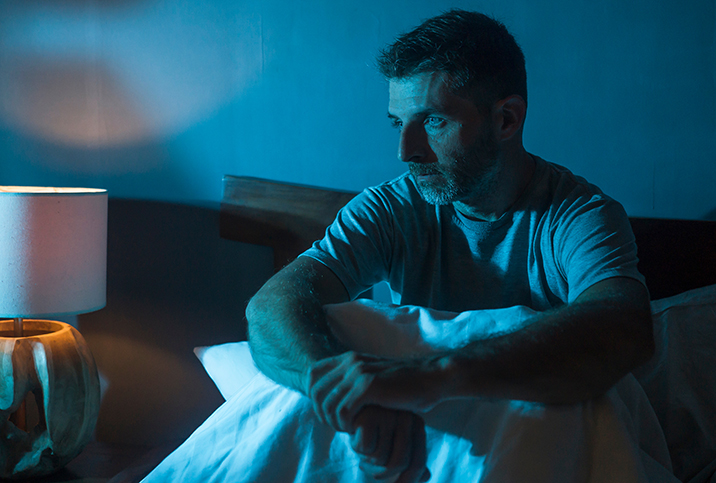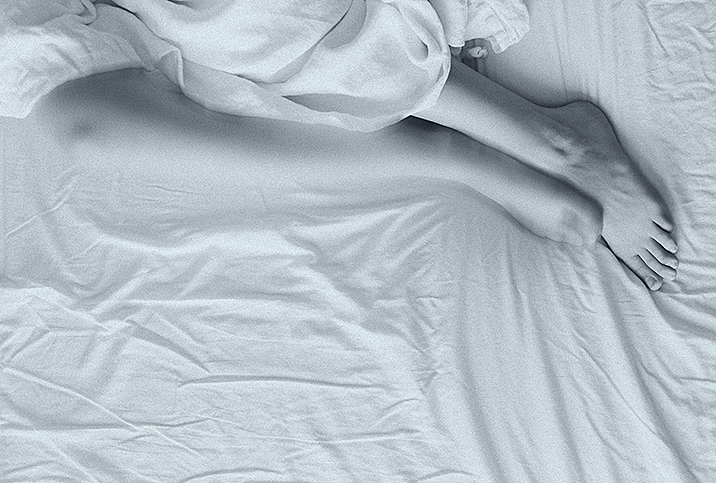How Much Sleep Do You Need According to Your Age?

In this hyperspeed world, the inescapable culture of overwork and the resulting (dubious) badges of honor for functioning on too little sleep often come with serious consequences.
What do we mean when we talk about sleep deprivation? How much sleep is enough? And how does lack of sleep affect erectile function?
What sleep deprivation does to you
Sleep disorders can wreak havoc on your body, emotions and mind, manifesting in a surprisingly wide array of conditions.
One meta-study, published in the New Zealand journal Sports Medicine, found sleep deprivation affects certain athletic performances and promotes inflammation and immune system dysfunction. Researchers indicated reduced sleep quality and quantity in athletes can cause an autonomic nervous system imbalance, mimicking the symptoms of overtraining syndrome.
'When a person sleeps sufficiently, there is more happiness, more wellness and there's more overall good health.'
Lack of quality sleep can affect your mental health as well as your physical functioning.
"When a person sleeps sufficiently, there is more happiness, more wellness and there's more overall good health," said Alon Avidan, M.D., head of the UCLA Sleep Disorders Center. "When they're sleep-deprived, they suffer memory problems, they become more depressed, more anxious, and then there is also an issue related to the fact that they're not able to regulate emotions."
Are you ready, EDdie?
Men who are proud of the long hours they put in at the office might be interested in a 2008 meta-study published in the Journal of Urology—especially if they also take pride in their bedroom prowess.
The trial indicated that a link between sleep disorders and erectile dysfunction is much more common than previously thought. In fact, the link was so common, the study's authors recommended doctors evaluate patients for both if they present with either issue.
A massive trial in Taiwan involving more than 50,000 participants, published in the journal Sleep Medicine in 2016, found men with sleep disorders of any kind had a higher risk of ED than the non-sleep-disorder cohort.
Other studies, like one in the Journal of Sexual Medicine from 2009, reported 69 percent of men diagnosed with obstructive sleep apnea also experienced ED.
What can you do about it?
The causal link between sleep disorders and ED isn't entirely clear.
However, another research project, published in the World Journal of Men's Health, may have added another piece to the puzzle. The researchers found sleep deprivation that results from the type of fragmented sleep you get with sleep apnea may cause testosterone levels to decline.
The researchers' intervention—sleep apnea treatments, including continuous positive airway pressure (CPAP) and testosterone replacement therapy—had a positive effect on men's ability to get and keep an erection.
And then there's your brain
If the functioning of your penis isn't enough of a motivating factor for solid rest, how about the functioning of your brain?
Sleep deprivation is often associated with dementia. Avidan pointed out sleep is necessary for the proper functioning of the glymphatic system—the brain's own lymphatic system for waste clearance to clean out toxins and proteins that accumulate. An improperly functioning system could potentially lead to serious brain dysfunction over time.
"The problem is that the glymphatic system is only active during the night and during sleep," Avidan said. "If people aren't getting enough sleep, they may accumulate abnormal proteins and toxins, and that can potentially lead to a buildup of proteins that are often associated with Alzheimer's."
Okay, so let's assume you're one of those people who likes the function of their brain as well as their genitals. According to the Sleep Foundation, here's how much sleep we need at a given age in order to be healthy.
| Age | Recommended daily sleep |
|---|---|
| 0-3 months | 14-17 hours |
| 4-11 months | 12-15 hours |
| 1-2 years | 11-14 hours |
| 2-5 years | 10-13 hours |
| 6-13 years | 9-11 hours |
| 14-17 years | 8-10 hours |
| 18-64 years | 7-9 hours |
| 64+ years | 7-8 hours |
But I don't need as much sleep
While sleep experts agree there may be a minuscule percentage of individuals who fall outside these norms, you likely need seven to nine hours of what researchers call "consolidated sleep" every night, or you risk serious consequences. Consolidated sleep refers to sleeping all in one go in order to allow the interlocking cycles of sleep to operate correctly.
"Lots of people think sleep is just one thing: I'm awake or I'm asleep," said Ellen Stothard, head of research and development at the Colorado Sleep Institute. "It's very much not that. The intricacy of the cycles is the important thing."
Another myth Stothard is eager to debunk is the notion that as we get older, we need significantly less sleep. While it's true that people who are in their late middle age and beyond often complain about sleeping less or say they need less sleep, that doesn't produce a healthy outcome. Rather, it's simply another manifestation of how the body's systems deteriorate with age.
"There's no change in your body's physiological need for sleep," Stothard said. "It is true that your body's ability to generate sleep in the same way that you did when you were younger is different. Your sleep becomes more fractured because of the deterioration of your brain through natural aging. So it's not that you need less sleep—it's that your sleep changes itself."
The serious business of zzz's
If there's one takeaway from this article, it should be that sleep disorders are serious business and sleep should be treated as an important component of your overall health.
If you experience any effects from lack of sleep—such as fogginess, irritability, moodiness, weight gain, inability to concentrate and low energy—make an appointment immediately to go see your doctor. Sometimes, as with sleep apnea, the solution can be as simple as wearing a positive airway mask.
And given the studies mentioned above, there's no guarantee that a mild sleep disorder today won't mean ED or a more serious problem tomorrow.




















